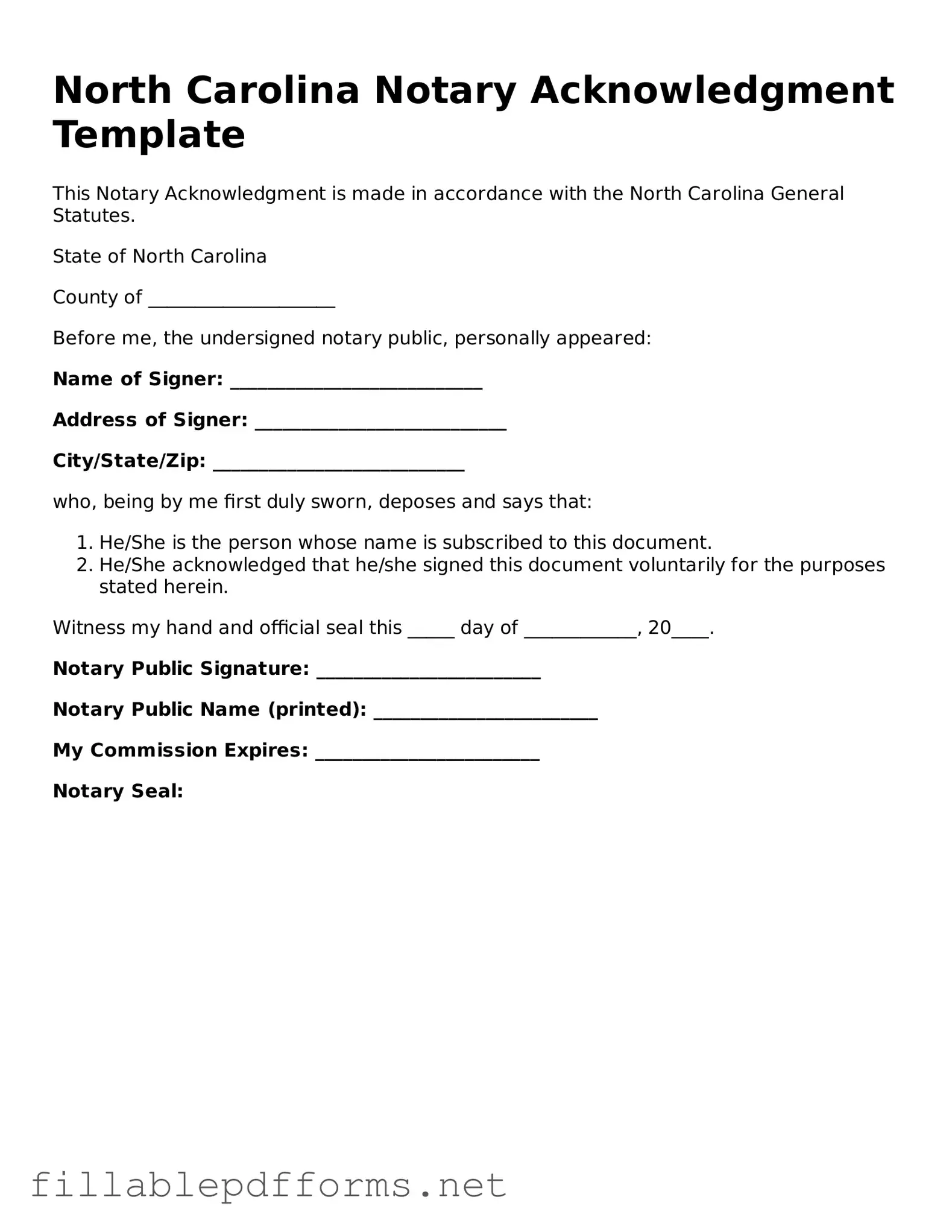Attorney-Verified Notary Acknowledgement Form for North Carolina State
The North Carolina Notary Acknowledgement form is a legal document used to confirm that a person has signed a document in the presence of a notary public. This form serves to provide assurance that the signature is genuine and that the signer acted voluntarily. Understanding its purpose and proper use is essential for anyone involved in legal transactions in the state.
Launch Editor Here

Attorney-Verified Notary Acknowledgement Form for North Carolina State
Launch Editor Here

Launch Editor Here
or
▼ Notary Acknowledgement PDF
Almost there — finish the form
Complete Notary Acknowledgement online fast — no printing, no scanning.